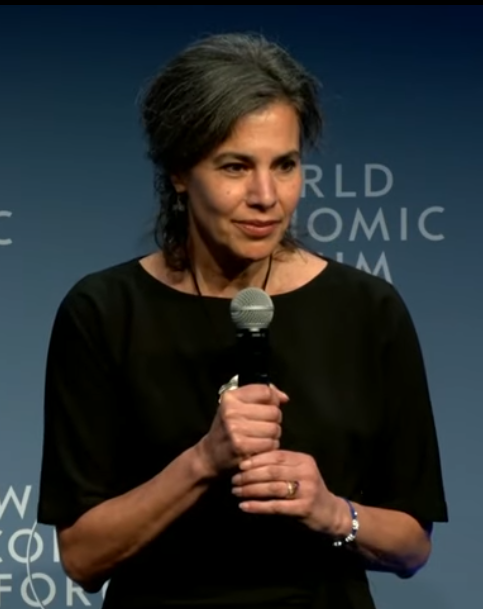My personal experiences have crystalized into the way Thaki tackles essential learning gaps for refugee and vulnerable learners, through a unique technology-based model.
Rudayna Abdo Founder and CEO of Stichting Thaki Nederland

Rudayna Abdo - Founder and CEO of Stichting Thaki Nederland
2024 WE Empower UN SDG Challenge Finalist, Middle East and North Africa Region
Rudayna Abdo, the founder and CEO of Thaki, has transformed her personal experiences as a daughter of Palestinian refugees into a mission to empower refugee and vulnerable children through technology and education. Driven by the injustices of war and displacement, Abdo leveraged her world-class education from MIT and McGill University and her successful career in urban planning to create Thaki in 2015.
The birth of Thaki
Thaki is an organization that embodies principles of the circular economy by collecting used laptops from companies and distributing them to refugee schools and vulnerable children in the Middle East. Over the past nine years, Thaki has reached over 30,000 children, significantly impacting their educational opportunities and personal development.
Abdo’s innovative approach extends beyond merely providing hardware. Thaki offers a robust suite of self-paced, motivational electronic tools designed to fill essential learning gaps. The organization also emphasizes sustainability by extending the life cycle of used laptops, thus reducing e-waste, and pioneering clean energy solutions for schools.
Under Abdo’s leadership, Thaki has forged partnerships with global banks, consultancies, and ed-tech companies, driving support for their mission. This includes the deployment of their social-emotional learning program, Nour’s World, which has shown significant improvements in children’s behavior and emotional resilience. Thaki also focuses on upgrading technology, enhancing teachers’ digital literacy, and scaling operations to new regions, with a goal of reaching 130,000 learners by the end of 2025.
Commitment to United Nations Sustainable Development Goals

Abdo’s dedication to sustainability and education aligns Thaki with multiple Sustainable Development Goals advancing the global 2030 agenda. Thaki’s impact is evidenced by improved educational outcomes among students, increased digital literacy, and heightened engagement in learning (SDG 4: Quality Education). The organization’s initiatives have supported digital literacy for women and girls, promoted human rights and global citizenship, and indirectly helped girls avoid early marriage (SDG 5: Gender Equality). Furthermore, Thaki’s approach to extending the life of technological devices and utilizing solar energy installations further underscores its commitment to environmental sustainability (SDG 12: Responsible Consumption and Production).
A visionary leader
Rudayna Abdo’s journey from a displaced child to a visionary leader exemplifies the power of resilience and innovation in creating lasting positive change. Through Thaki, she continues to inspire and mobilize resources globally, fostering a future where every child has the opportunity to learn and thrive.
I…live in awareness of our impact on the environment and our attitude to seeing technology being treated as disposable.
Rudayna Abdo
By Grace Reiter, WE Empower Intern